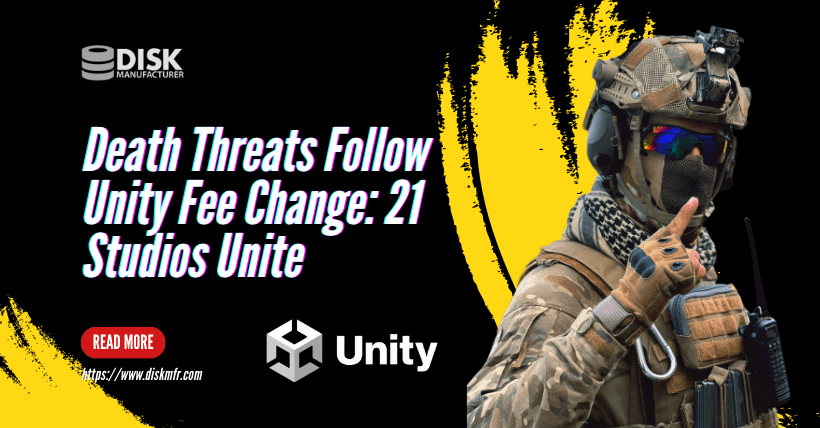Because of a death threat warning, Unity was forced to close two offices. Furthermore, CEO John Riccitiello issued a notice to all employees
Canceling meetings company-wide. Unwell employees can opt for remote work.

And the reason for this is precisely due to the recent fee regulations announced by Unity.
Starting from January 1, 2014, for all games developed using the Unity engine, once the download count and revenue exceed the threshold, a certain ‘installation fee’ must be paid for each download and installation.
This move has undoubtedly stirred up a thousand waves and immediately angered many game developers.
Subsequently, the situation escalated to the point where the official received death threat warnings.
As a result, Unity was forced to announce the closure of two offices in Texas and San Francisco this Thursday and Friday.
01
Free game developers are lamenting incessantly
Let’s first take a look at the fee regulations introduced by Unity.
In a recent official blog post, Unity stated the following:
As we all know, the Unity engine consists of two essential components: Unity Editor and Unity Runtime.
Unity Runtime is the code executed on players’ devices, enabling large-scale game operation with a monthly download count reaching billions.
The crucial point comes next; after the official mentioned this critical ‘monthly download count reaching billions,’ they are about to take action on it:
Put bluntly, Unity believes that every time a game is run, their own Unity Runtime is utilized, which is why they have decided to start charging for it.
- Specifically, for Unity Personal users (including free users), once their game’s annual revenue reaches $200,000 and the total installations reach 200,000, there will be a charge of $0.2 per installation.
- For Unity Professional and Enterprise users, when their game’s annual revenue reaches $1 million and the total installations reach 1 million, the installation fees are $0.15 and $0.125 per installation, respectively, with corresponding discounts for higher installation counts.
- Before this change, Unity used to charge developers on an annual basis, without additional fees based on game sales.
- The highest-tier Enterprise version costs $4,950 annually, while the Personal Starter edition remains free.
This has left many developers frustrated.
Some argue that Unity’s charging method is highly unreasonable, raising concerns about the use of a specialized data model to track installations. They question whether this approach could impact privacy and how accuracy in counting is ensured.
Others believe that even with a perfect counting method, the scope of the application is still unjust.
One internet user roughly calculated that if a game is priced at $0.99 after Steam deducts its 30% platform fee and Unity charges 20 cents per installation, developers would receive a maximum of 46 cents for every $1 earned.
Developers of free games, in particular, are expressing even more discontent.
The more installations players make, the more money is lost. The money earned from in-game purchases is being poured out,” said the developer of “The Fall.
Hey, @unity, our game “The Fall” was on the @EpicGames as a free game – l was quite happy to sell them the rights for peanuts and the game was installed like 7 million fucking times. How do you propose this will work? I’d owe you more money than I’ve made in my life.
After a few days of the situation escalating, some individuals directly pointed fingers at CEO Riccitiello, believing that he was the driving force behind the new policy.
This stems from a previous scandal in which he was exposed for referring to developers who were unwilling to comply with his plans as ‘idiots’.
As of now, due to the somewhat uncontrollable development of the situation, the official Unity account (formerly Twitter) has urgently posted:
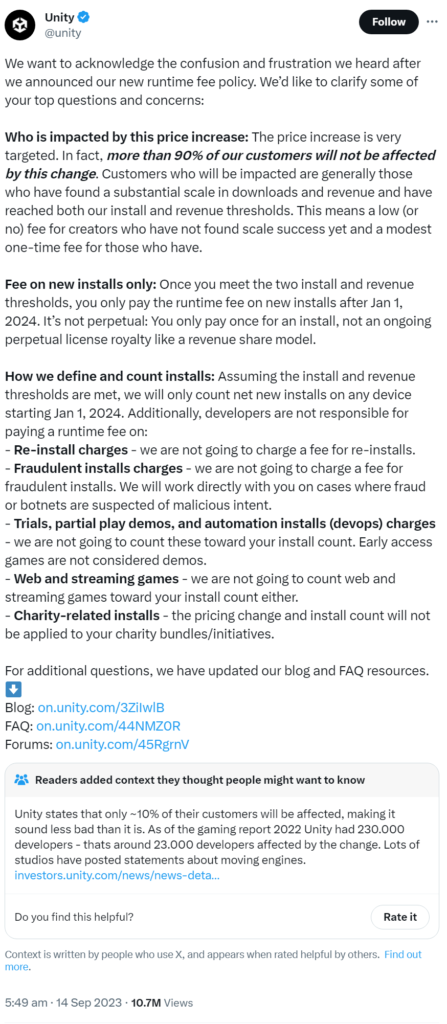
Nevertheless, it seems that the majority of internet users still remain unconvinced and believe that this falls under deceptive charging practices.
02
In protest of the fee structure, 21 overseas studios jointly announced the closure of in-game Unity advertisements
According to foreign media mobilegamer, several game studios jointly released a joint letter yesterday to protest against the recent fee-based model introduced by the game engine Unity, which charges ‘installation fees’ to game developers.
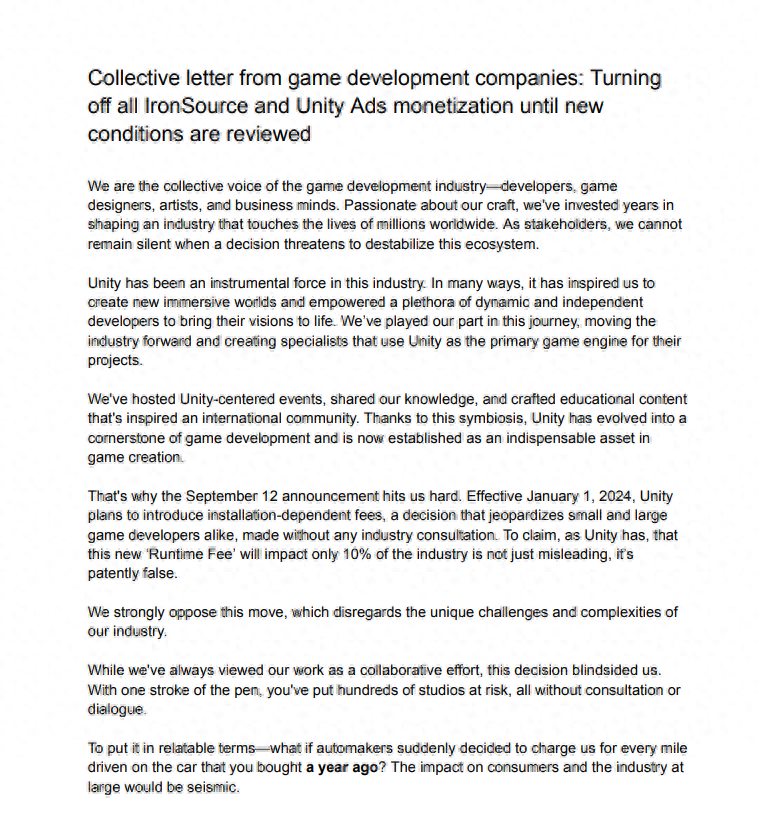
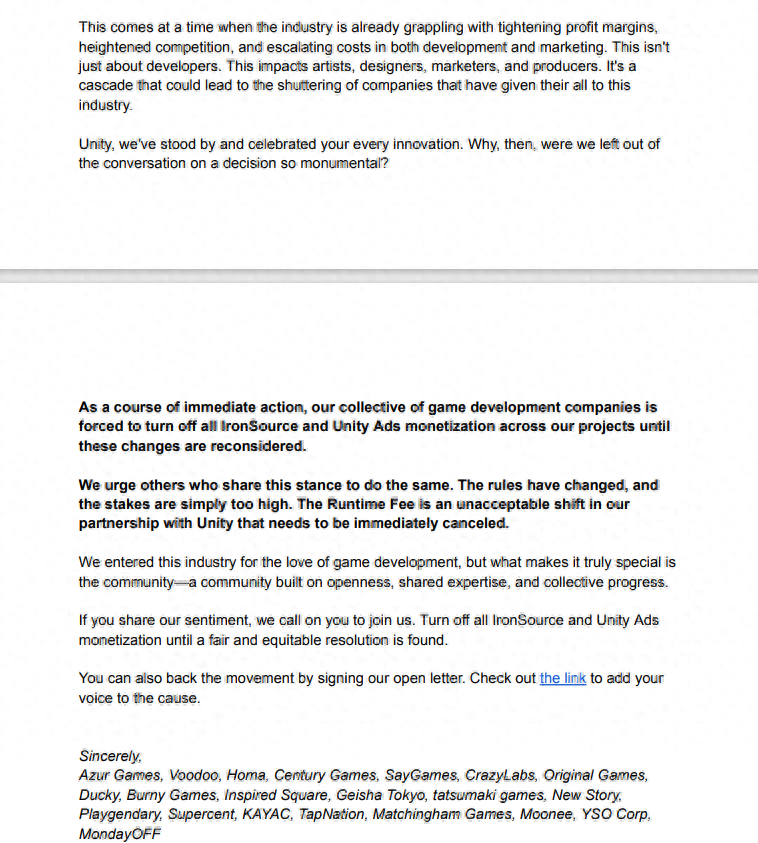
According to reports, initially, a total of 16 game studios joined this joint open letter. They announced the closure of Unity Ads and IronSource SDK in their own games while stating, ‘Unless new conditions arise, this decision will not be reversed.’ However, according to subsequent updates from this foreign media, an additional 5 game studios have joined this initiative, bringing the total to 21.
The open letter mentions, “Without negotiation and dialogue, this decision has put hundreds of studios in a precarious situation.” It also uses the example of a car purchase scenario: What if a car manufacturer suddenly decides to implement a “mileage-based fee” plan on a car you purchased a year ago? Additionally, in response to Unity’s previous claim that this move would only affect 10% of studios, the open letter disputes this, stating, “This is misleading.”
IT Home previously reported that Mega Crit, the development team behind the popular card game “Slay the Spire,” made an official announcement on September 14th. They stated that their future game projects would switch to a different game engine and would no longer use Unity.
The official Mega Crit account also tagged the official Unity account and waved goodbye with a waving hand gesture.

03
Unity’s competitors, on the other hand, have seen a surge in popularity
Interestingly, this windfall of fortune has also started to favor Unity’s competitors.
For instance, Godot is one of them and has been catapulted by developers to the top of the GitHub trends chart!
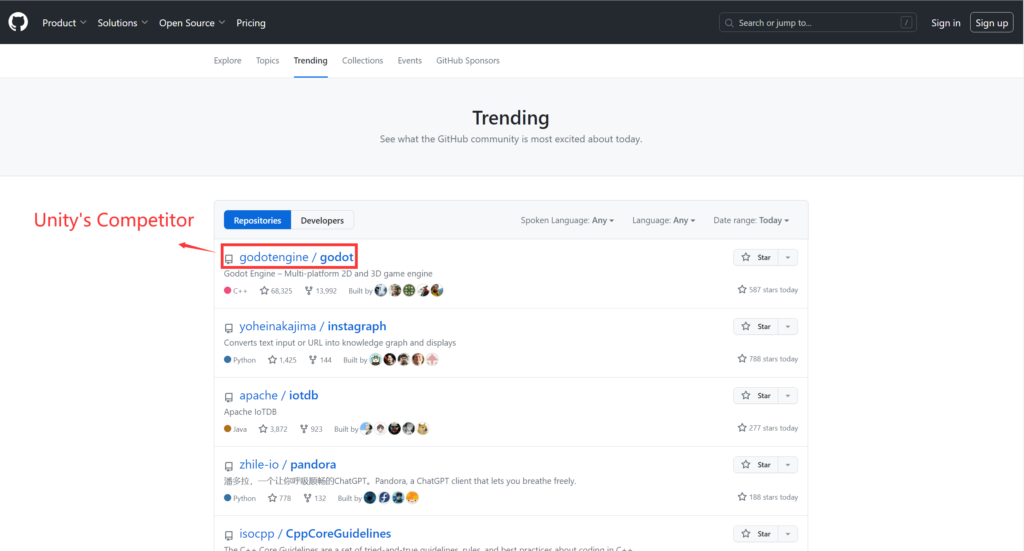
Bloggers haven’t been idle either and have quickly followed up with video tutorials like ‘Step-by-Step Guide on Switching from Unity to Godot’:
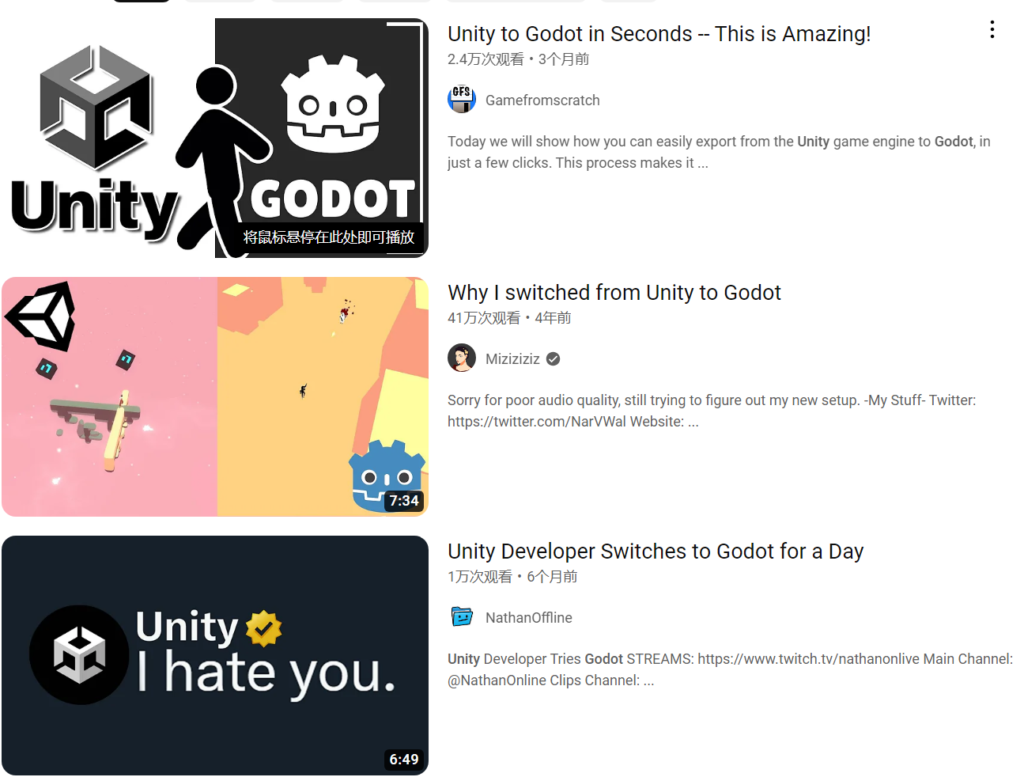
So, in the end, the soul-searching question arises —
Would you still choose Unity?
Related:
- Unity Adapts: New Rules After $2.3 Billion Loss
- Windows Security Guide: Block Software Installs Easily!

Disclaimer: This article is created by the original author (QbitAI). The content of the article represents their personal opinions. Our reposting is for sharing and discussion purposes only and does not imply our endorsement or agreement. If you have any objections, please contact us via the provided channels.

